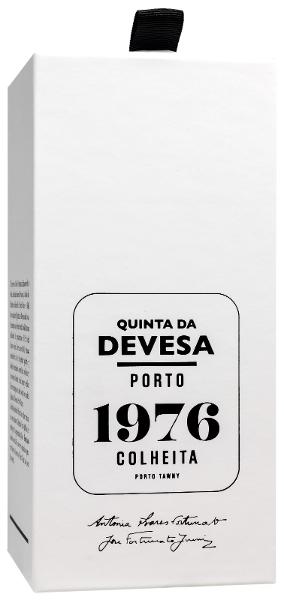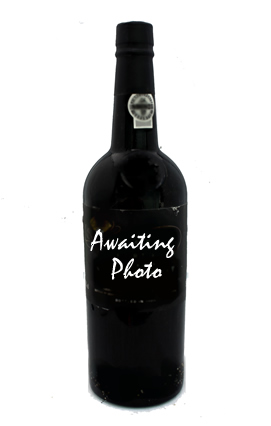Quinta da Devesa, 1976 Colheita Port
Colheita Port in presentation box
***94 Points - Robert Parker ***
Special Offer | WAS £139 | Now £99
Bottle size: 50 cl
ABV: 20%
Price:
£99.00
Description
Colheitas are dated Tawnies from one single harvest. The minimum age requirement is 7 years, but the tradition at Quinta da Devesa is to age several more years before bottling. The wine ages at their cellars in "balseiros", "tonéis" or 550 litre casks.
Learn more about Quinta da Devesa
Tasting Notes:
The Quinta da Devesa Colheita 1976 Tawny is orange-brown in coloir with a slight verdant edge. Orange peel and smoky caramel notes on the nose. Maple and orange notes, spice on the palate. Full bodied and in perfect balance this is a delightful, yet a powerful and lively wine. A sumptuous finish with layers of complexity.
1976 Quinta da Devesa Technical Sheet
Colheita Port Storage and Serving Advice:
Colheita Port should be stored in a cool and dry place, sheltered from light and temperature fluctuations, and the bottle should remain in an upright position. If stored correctly, Colheita Ports will keep for decades in the bottle. Over time, it is natural that a little sediment will form at the bottom of a bottle of colheita Port wine. Once opened colheita Port should be stored in a fridge and should be consumed within 3 months. Colheita Ports do not require decanting and are best served at a temperature between 14 and 16°C.
Learn more about Colheita Port
Condition
Reviews
***94 Points - Mark Squires (eRobert Parker)***
The 1976 Colheita Tawny Port is a field blend bottled in 2018 with a bar-top cork, 102 grams of sugar and 21% alcohol. Fairly sedate and restrained on opening for its age, this shows off its power and its intense flavors as it sits in the glass. Focused, precise and delicious, this is a beautiful Tawny with significant power, the fruit hanging with its power step by step. It does show plenty of maturity as it sits on the tongue, so it doesn't lack for those hints of molasses, but it's fresh enough and very complex. July 2019 (Mark Squires)









